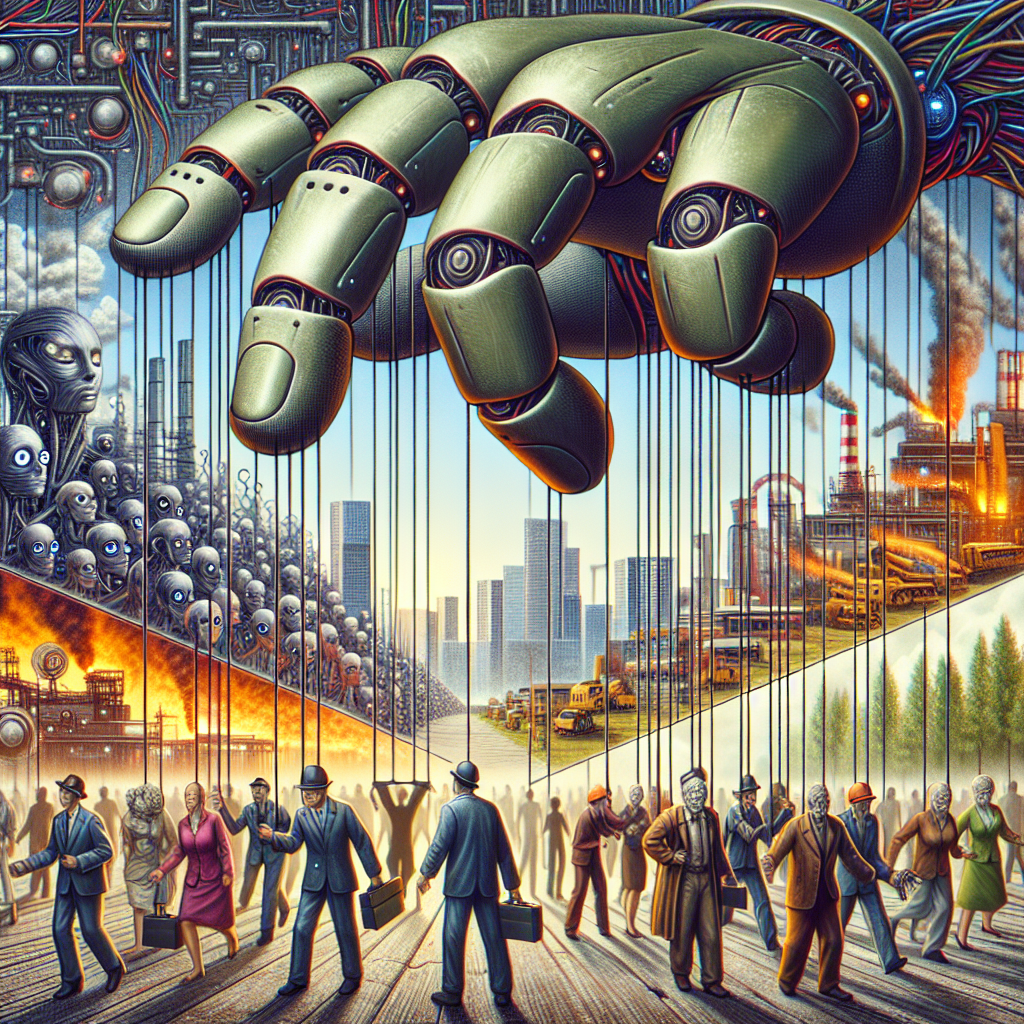AGI and the Job Market: Will Automation Lead to Mass Unemployment?
Artificial General Intelligence (AGI) is a term used to describe machines or software that possess the ability to understand, learn, and apply knowledge across a wide range of tasks. While current artificial intelligence (AI) technologies are designed to excel at specific tasks, AGI aims to replicate human-level intelligence, making it capable of performing a wide variety of tasks with the same level of proficiency as a human.
The rapid advancement of AI and automation technologies has raised concerns about the impact these technologies will have on the job market. Many fear that the rise of AGI and automation will lead to mass unemployment as machines take over tasks traditionally performed by humans. In this article, we will explore the potential impact of AGI on the job market and address the question of whether automation will lead to mass unemployment.
The Impact of AGI on the Job Market
The rise of AGI and automation has the potential to drastically change the nature of work. While automation has been a part of the workforce for centuries, the development of AGI poses a new set of challenges. AGI has the ability to perform tasks that were previously thought to be the exclusive domain of humans, such as creative problem-solving, decision-making, and emotional intelligence.
As AGI technology continues to advance, it is likely that many routine and low-skilled jobs will be automated. Jobs that involve repetitive tasks, such as data entry, manufacturing, and customer service, are at risk of being replaced by machines. Additionally, jobs that require a high level of technical expertise, such as accounting, legal research, and medical diagnosis, may also be automated as AGI becomes more proficient at these tasks.
While automation has the potential to increase productivity and efficiency, it also has the potential to displace workers. As machines take over tasks traditionally performed by humans, many workers may find themselves out of a job. This could lead to mass unemployment and economic disruption as large segments of the workforce are displaced by automation.
However, some experts argue that the impact of AGI on the job market may not be as dire as some fear. They point to the historical precedent of technological advancements leading to the creation of new types of jobs. As certain tasks become automated, new opportunities for work may emerge in fields such as AI development, robotics, and data analysis.
Additionally, AGI has the potential to augment human capabilities rather than replace them entirely. By working alongside AGI systems, humans may be able to perform tasks more efficiently and effectively, leading to increased productivity and job creation.
FAQs
1. Will AGI lead to mass unemployment?
While the development of AGI and automation technologies may lead to job displacement in certain industries, it is unlikely to lead to mass unemployment. Historically, technological advancements have led to the creation of new types of jobs, and the rise of AGI is likely to be no different. While certain tasks may be automated, new opportunities for work may emerge in fields such as AI development, robotics, and data analysis.
2. How can workers prepare for the rise of AGI?
Workers can prepare for the rise of AGI by developing skills that are difficult for machines to replicate. Skills such as critical thinking, creativity, emotional intelligence, and interpersonal communication are likely to remain in demand as automation technology advances. Additionally, workers can stay informed about advancements in AI and automation and seek out training programs to develop new skills that will be valuable in the future job market.
3. What role can governments play in mitigating the impact of AGI on the job market?
Governments can play a crucial role in mitigating the impact of AGI on the job market by implementing policies that support workers who are displaced by automation. This may include providing retraining programs, education subsidies, and job placement services for workers who are affected by automation. Additionally, governments can work with industry leaders to develop ethical guidelines for the use of AGI technology to ensure that the benefits of automation are shared equitably among all members of society.
In conclusion, the rise of AGI and automation has the potential to reshape the job market in profound ways. While automation may lead to job displacement in certain industries, it is unlikely to lead to mass unemployment. By preparing for the rise of AGI and developing skills that are difficult for machines to replicate, workers can adapt to the changing job market and thrive in the age of automation. Governments can also play a crucial role in mitigating the impact of automation on the workforce by implementing policies that support workers who are displaced by automation. Ultimately, the future of work in the age of AGI will depend on how society chooses to adapt to and harness the power of this transformative technology.

